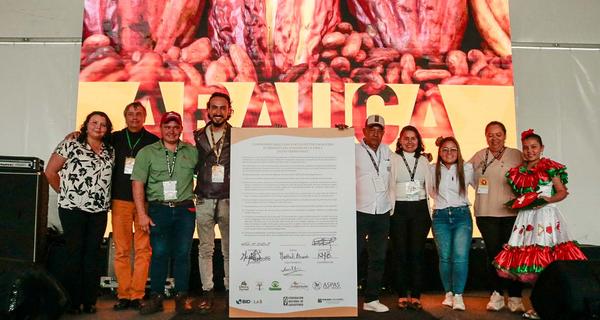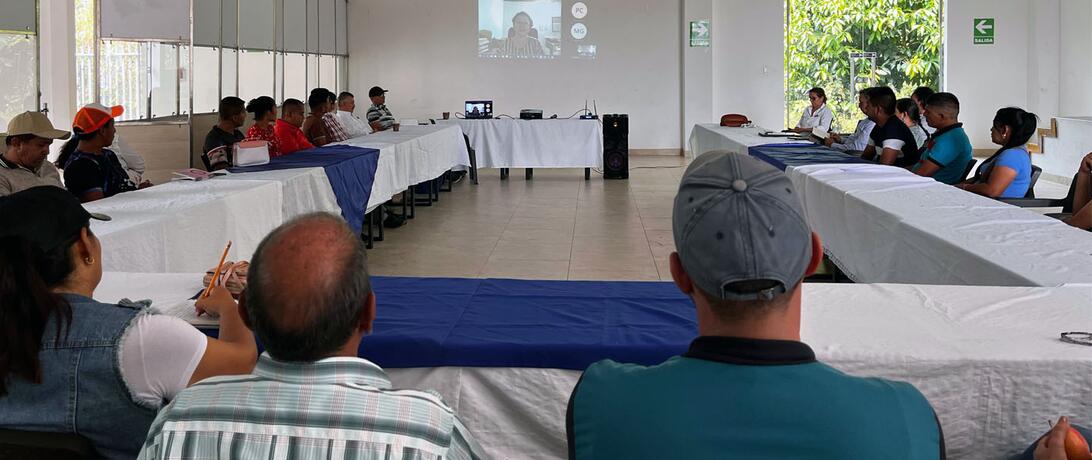
The Colombian Cacao and Chocolate Salon hosted the 'Binational Dialogue: Cocoa and Chocolate on the Colombian-Venezuelan Border for Employment, Peace, and Development,' which was supported by PASO and attended by 32 representatives from eight cocoa-related organizations in Venezuela and Colombia.
Arauquita, March 6, 2024 – The first binational dialogue between Colombian and Venezuelan cocoa producers began at 9:00 a.m. in the municipality of Arauquita, Arauca Department, Colombia. The main objective was to develop a road map for job creation on both sides of the border by integrating Colombia and Venezuela's cocoa value chains.
According to the National Administrative Department of Statistics (DANE), Arauca had the highest unemployment rate in the country (30.7%) as of July 2023, more than 20 percentage points higher than the national average of 10.2%.
The cocoa sector is one of Arauca's most important economic sectors, ranking among the top three departments in terms of national production. Given this context, strengthening the cocoa and chocolate value chains is critical for increasing access to dignified jobs in the department.
The dynamics of the Colombian cocoa sector are inextricably linked to those of Venezuelan cocoa producers. As a result, achieving synergy between the value chains in both countries has the potential to transform the economic and social reality of the region on both sides of the border, as well as improve living conditions for producers and migrants over time.
María Fernanda Di Giacobbe, a Venezuelan chocolatier and entrepreneur, stated during her speech at the even:
Our cocoas are among the best in the world and cannot be separated because, just as Colombians and Venezuelans are family, our cocoas are also family to each other, representing great power for both territories.
PASO Colombia, a One Earth Future program, helped organize the event, which covered key topics for the sector such as the benefits and challenges of cocoa bean transformation, experiences with job creation for migrants in Arauca's cocoa sector, sensory evaluation of cocoa and chocolate, and the importance of implementing agroforestry systems in cocoa cultivation.
The binational dialogue also included plenary sessions and working groups in which participants proposed solutions to the question of how to establish a network of Venezuelan and Colombian producers and organizations aimed at formalizing and creating dignified employment.
This meeting is part of PASO Colombia's actions that correspond with the "Araucano Commitment for a Cocoa Sector in Service of Life Care and Territorial Peace," which was signed on November 25 by five Araucan cooperatives and FEDECACAO as part of the event 'Arauca - Land of Cocoa, Land of Peace.'
The roadmap, proposals, and findings of this exercise will be organized and disseminated as input for strengthening the cocoa sector in Colombia and Venezuela, thereby contributing to the creation of dignified jobs and territorial peace on the border.
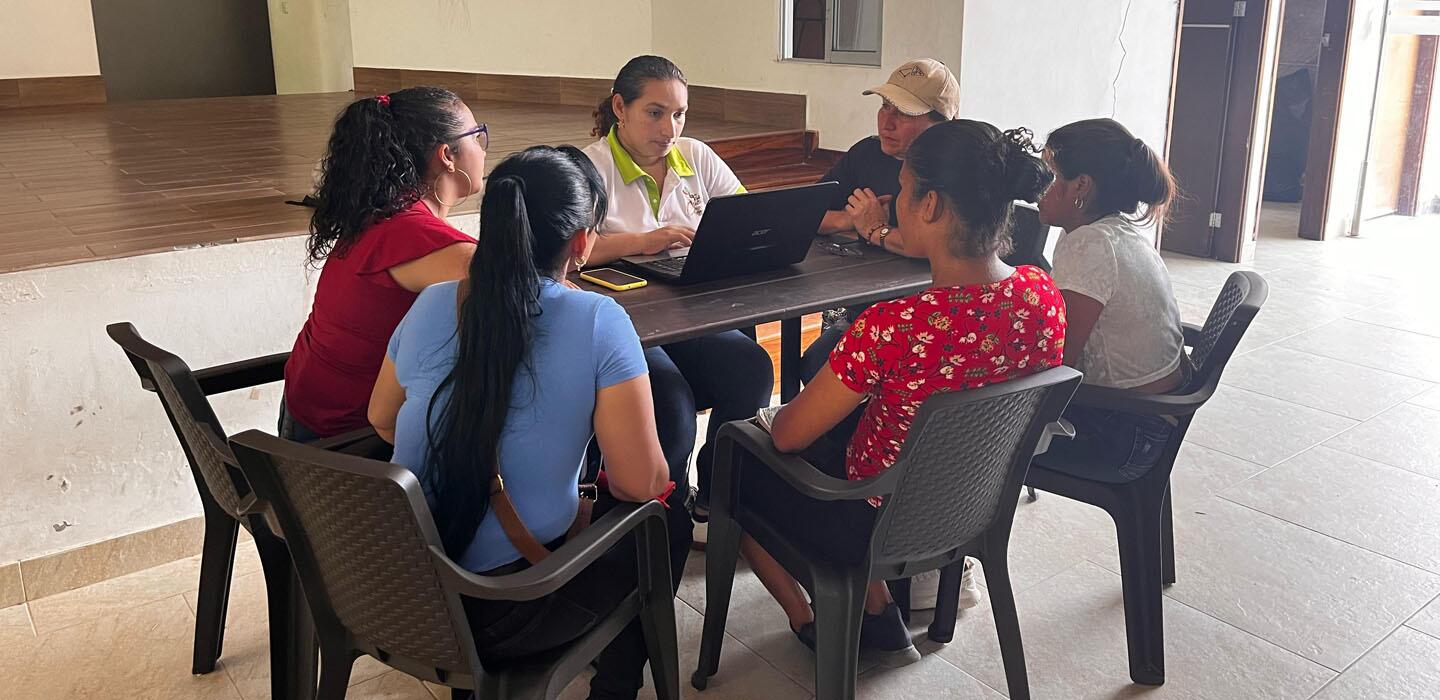
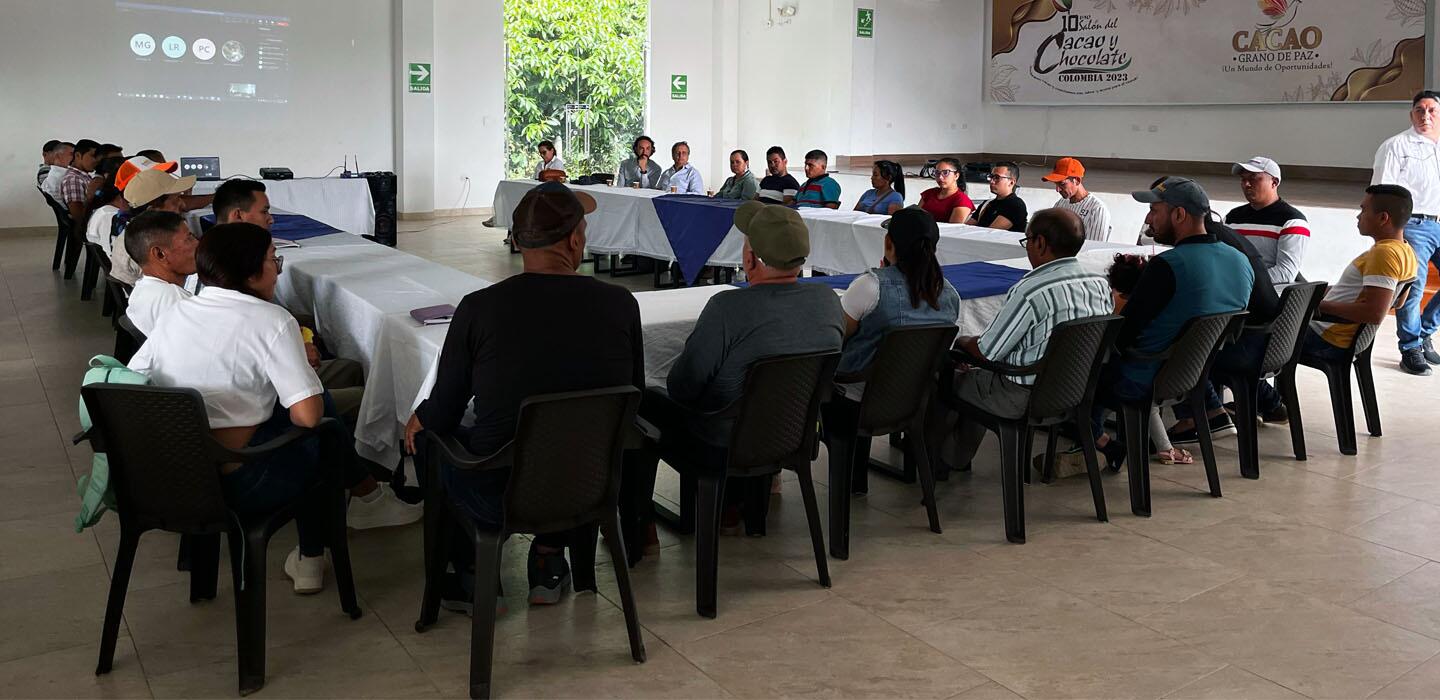
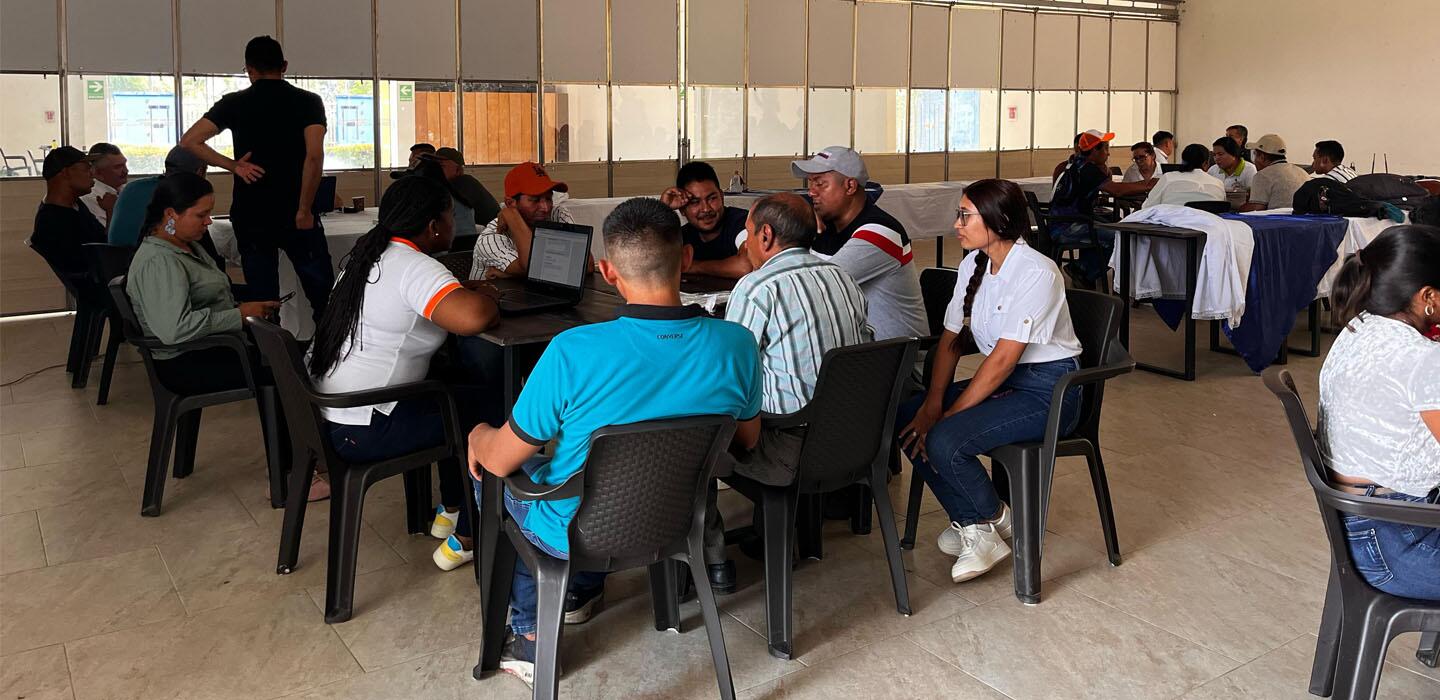
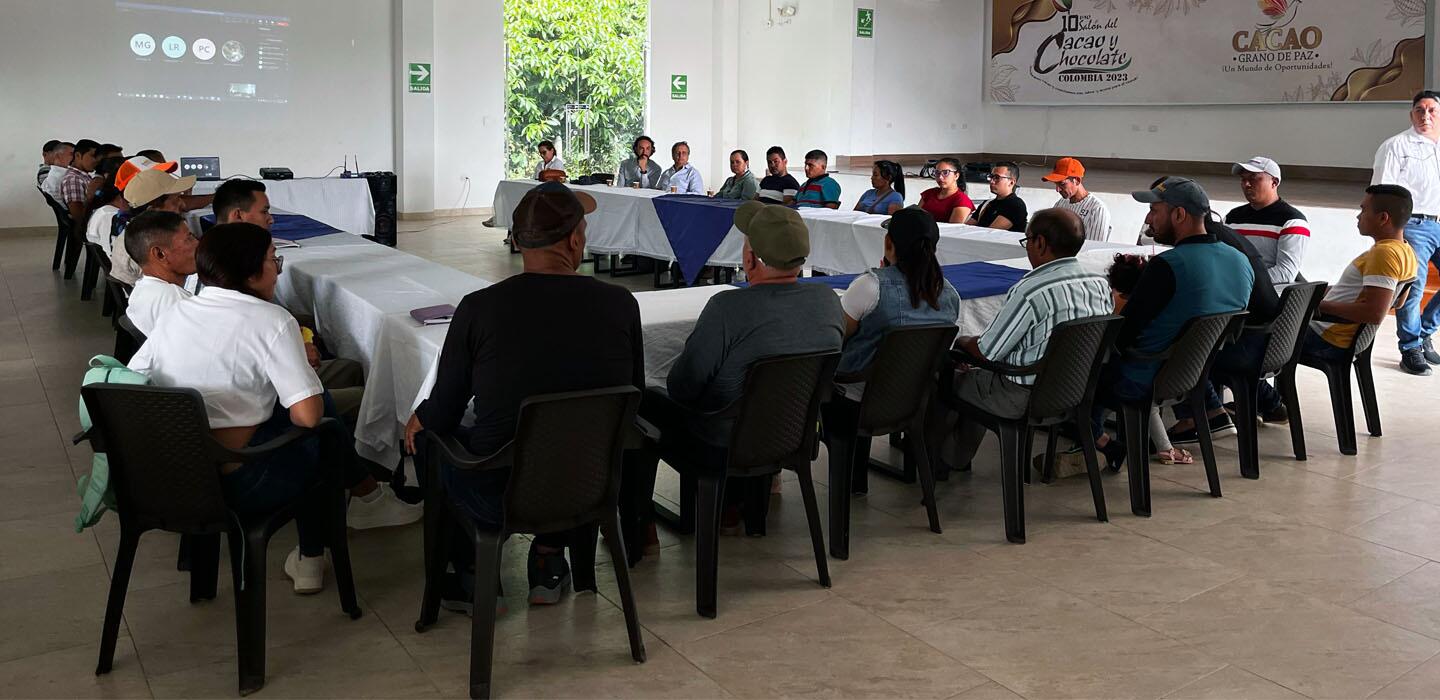
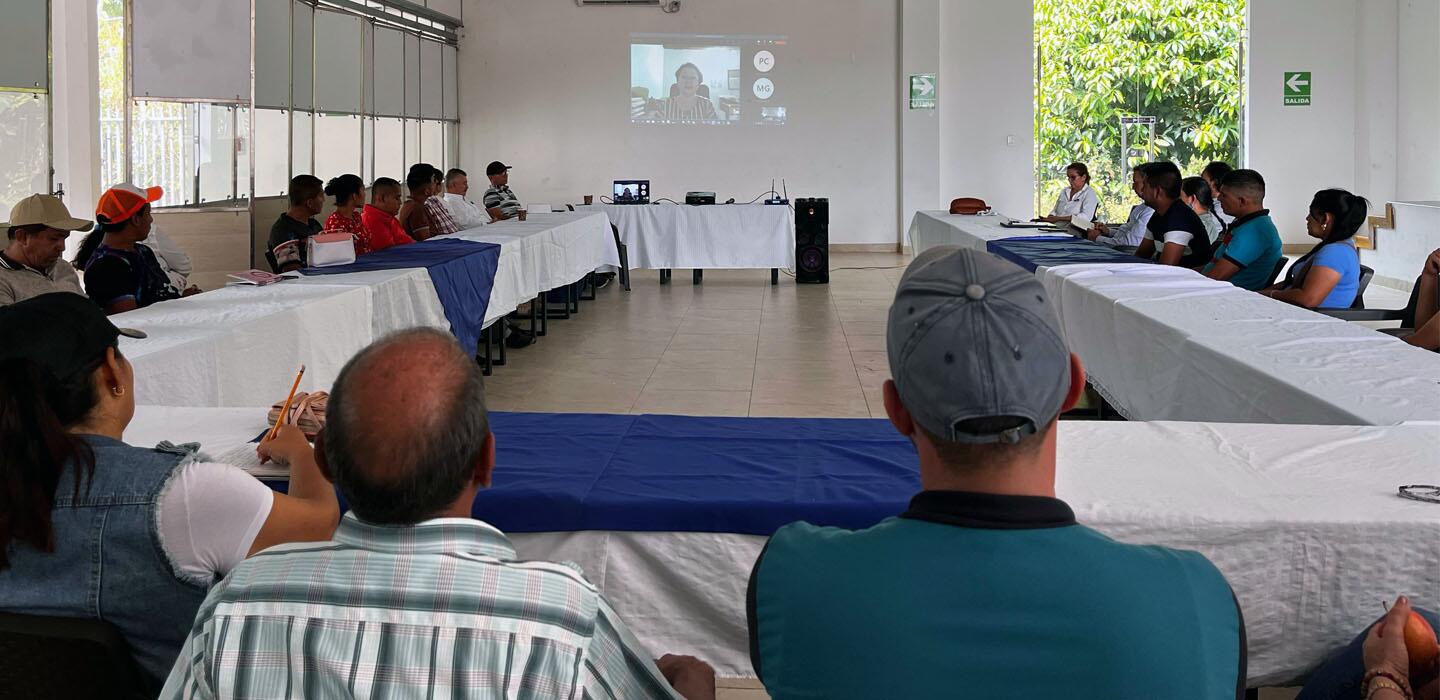
Article Details
Published
Topic
Program
Content Type
News
